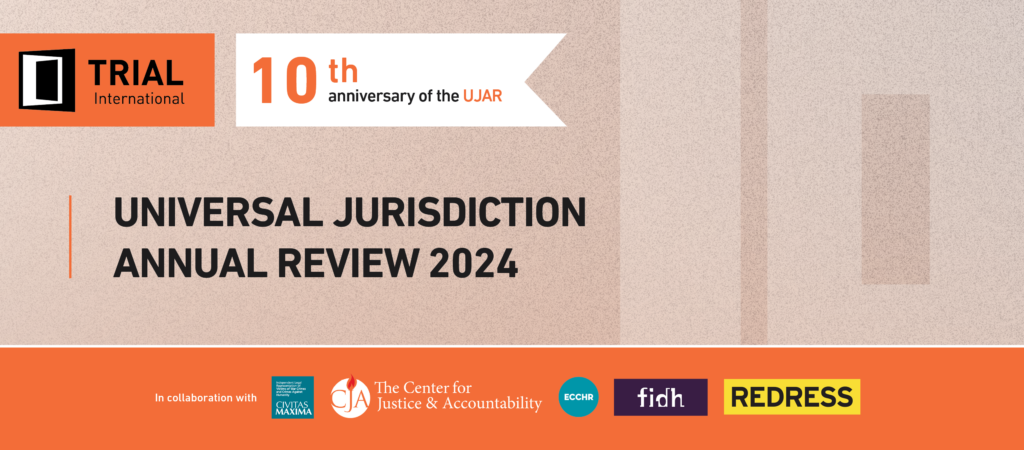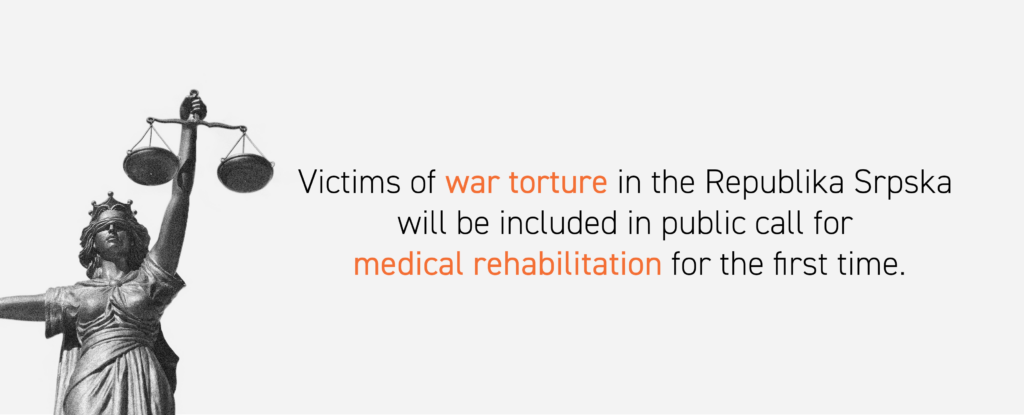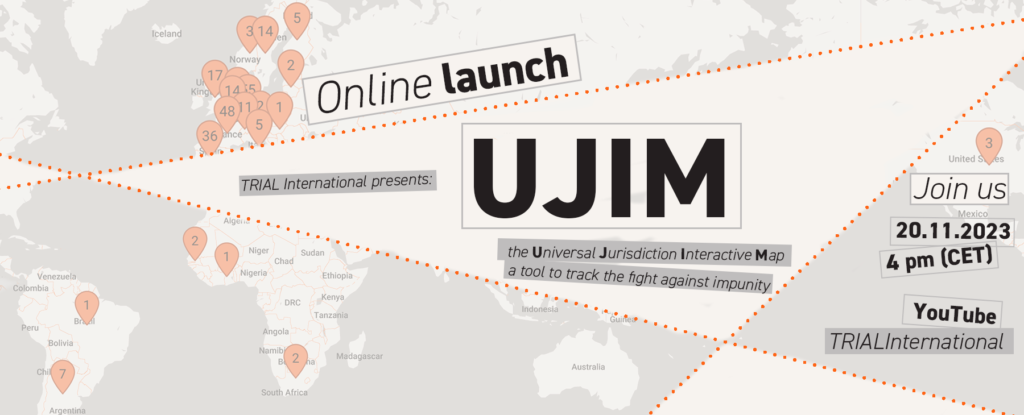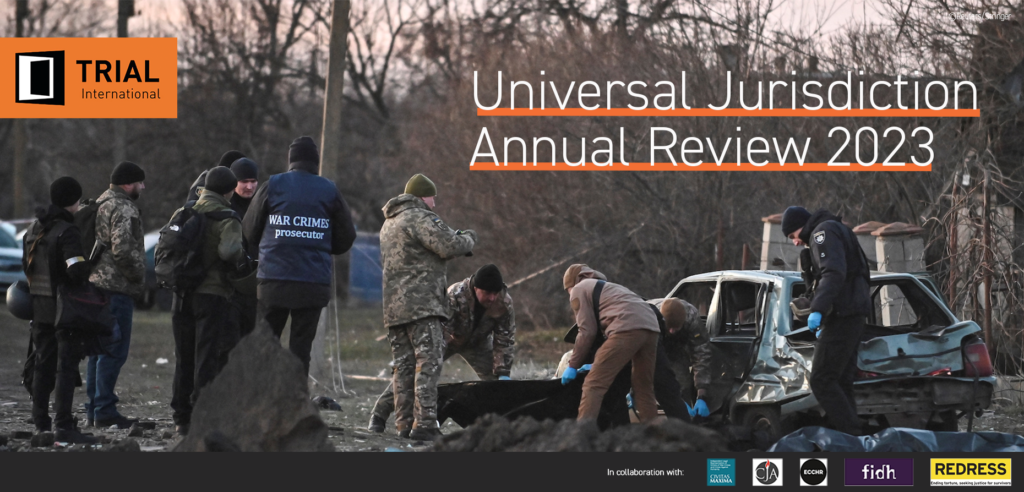ECHR should voice its opinion on the immunity of torturer minister
Geneva, 15 December 2010. In 2007, the Federal Court, Switzerland’s highest judicial authority, rejected a claim from a Tunisian victim of torture, to bring an action for damages against Tunisia and a former minister of the Interior. The European Court of Human Rights has just made it clear it might not agree.
In April 1992, while living in Italy, Mr. Abdennacer Naït-Liman was arrested and handed over to the Tunisian authorities. For forty days he was arbitrarily detained and subjected to various forms of torture; deprived of sleep, he was beaten and attached for the entirety of his detention to an iron bar positioned between two tables. Mr. Naït-Liman went through that hellish experience within the very premises of the Republic of Tunisia’s Ministry of the Interior.
In 1995, Mr. Abdennacer Naït-Liman was granted asylum in Switzerland due to the torture inflicted upon him during the forty days of his detention. He is now the chair of the Association of Torture Victims from Tunisia.
In February 2001, Tunisia’s former minister of the Interior, Mr. Abdallah Kallel, was in Geneva. Taking advantage of the situation, Mr. Naït-Liman filed a criminal complaint against Mr. Kallel for serious bodily injuries. He accused him of having ordered the physical and psychological torture to which he was subjected in the premises of the Ministry of the Interior. The former minister managed, however, to leave Switzerland just before Geneva’s judiciary could act.
In July 2004, and with the support of TRIAL, Mr. Naït-Liman began legal action aimed at securing compensation from Mr. Kallel and Tunisia for the injuries sustained as a result of the torture. Defended by Mr. François Membrez, TRIAL’s Vice-president, Mr. Naït-Liman filed his claim before the Geneva courts, since a return to his country would put him at risk of serious threats to his life. The only place where he could assert his rights was Geneva, where he had been living for many years.
Correctly summoned, the respondents refused to take part in the proceedings. Both the court of first instance and then the appelate court, however, ruled that the petition was inadmissible, either because of Mr. Kallel’s immunity for the acts committed within the scope of his duties, or because of an insufficient connection with Geneva.
Mr. Naït-Liman therefore appealed to the Federal court, wanting acknowledgement that “emergency jurisdiction” existed in Geneva, as allowed for by Article 3 of the federal code on private international law. According to that provision, jurisdiction should be asserted in Switzerland when “proceedings abroad are impossible or cannot be reasonably required to be brought”, thus granting judicial authorities “at the place with which the facts of the case are sufficiently connected” the necessary jurisdiction.
In a ruling on 22 May 2007, the Federal court rejected the appeal because of an insufficient connection, thus leaving open the question of whether the former minister of the Interior’s immunity could also be invoked.
On 20 November 2007, an application against Switzerland was introduced before the European Court of Human Rights on the ground that Article 6 §1 of the European Convention of Human Rights, which guarantees in particular the right to have access to a tribunal to assert one’s civil rights, had been violated. The applicant claimed that, regarding torture in particular, international law argues that victims can obtain compensation from their torturer, and that only Switzerland could adjucate the matter.
The European Court of Human Rights has just communicated to the Swiss Government, requesting that it gives it view on the case. In practice, rarely are applications “communicated” to Governments. This suggests that the case should be declared admissible and that the Court will render a ruling on the merits, stating whether or not the applicant’s right to have a Swiss court examine his claim was violated.
According to Mr. François Membrez, “the fact that the European Court is forging ahead is a strong indication that, when it comes to torture, justice can no longer be sidetracked by issues of immunity. Torture is an international crime, and each State should play its part in putting an end to it, including using civil action”. TRIAL, whose mission is to put the law at the service of victims of the most serious crimes, is satisfied with the latest developments. Philip Grant, TRIAL’s Director, said that “this case potentially carries great hope for victims of torture. The European Court must now declare that the law is on their side, and not on the torturers’ ”.
The European Court, based in Strasbourg, submitted to Switzerland the following question : “By refusing to examine the compensation claim directed against A.K., former minister of the Interior of the Republic of Tunisia, for the moral wrong suffered due to acts of torture, on the grounds that A.K. benefitted from legal immunity and that national courts were lacking jurisdiction in light of where the acts were committed, have those courts violated the claimant’s right to access a tribunal provided for by article 6 §1 of the Convention?”
Switzerland has until 21 March 2011 to answer that question. No date has been set for the Court’s ruling.
For more information:
- Naït-Liman case on TRIAL website.








